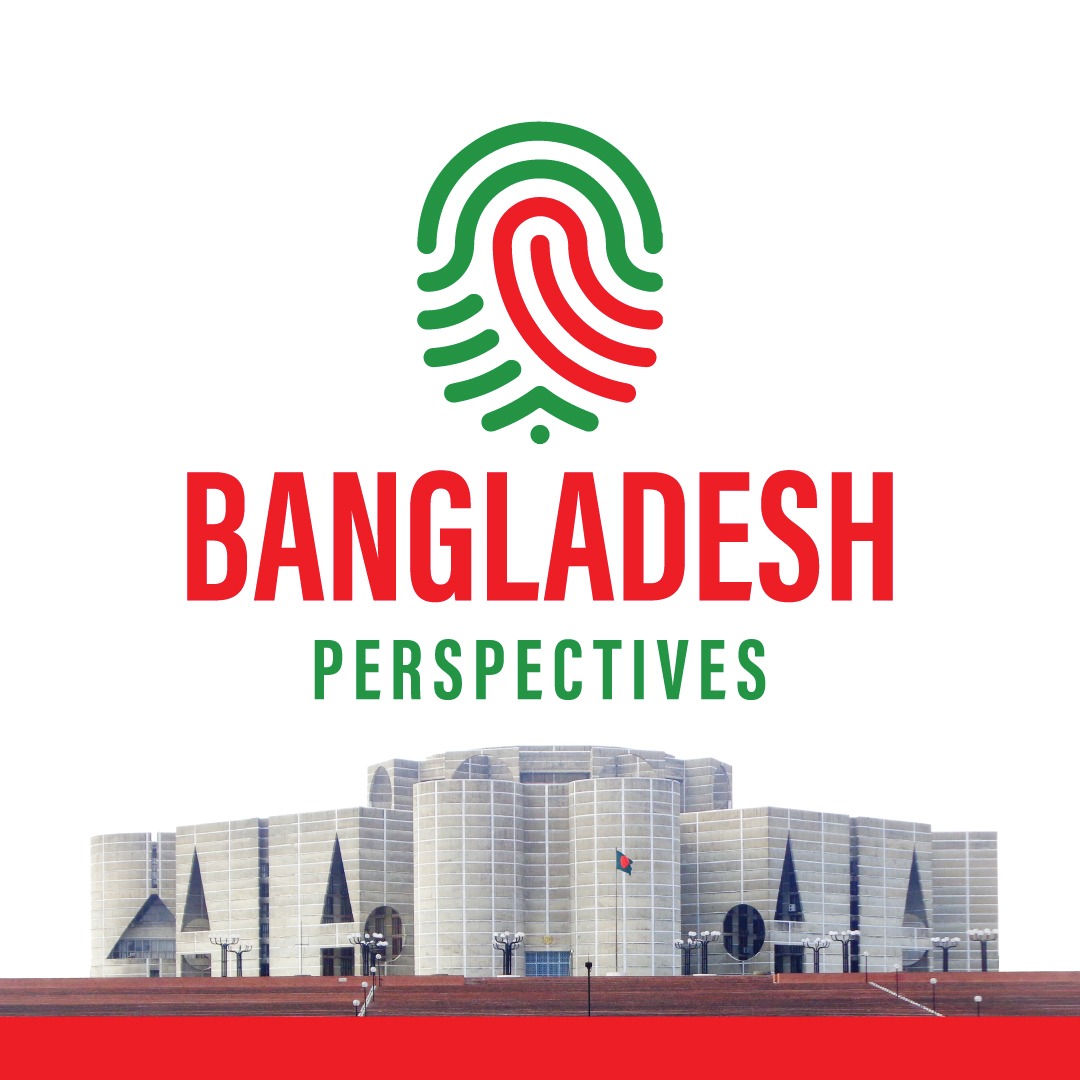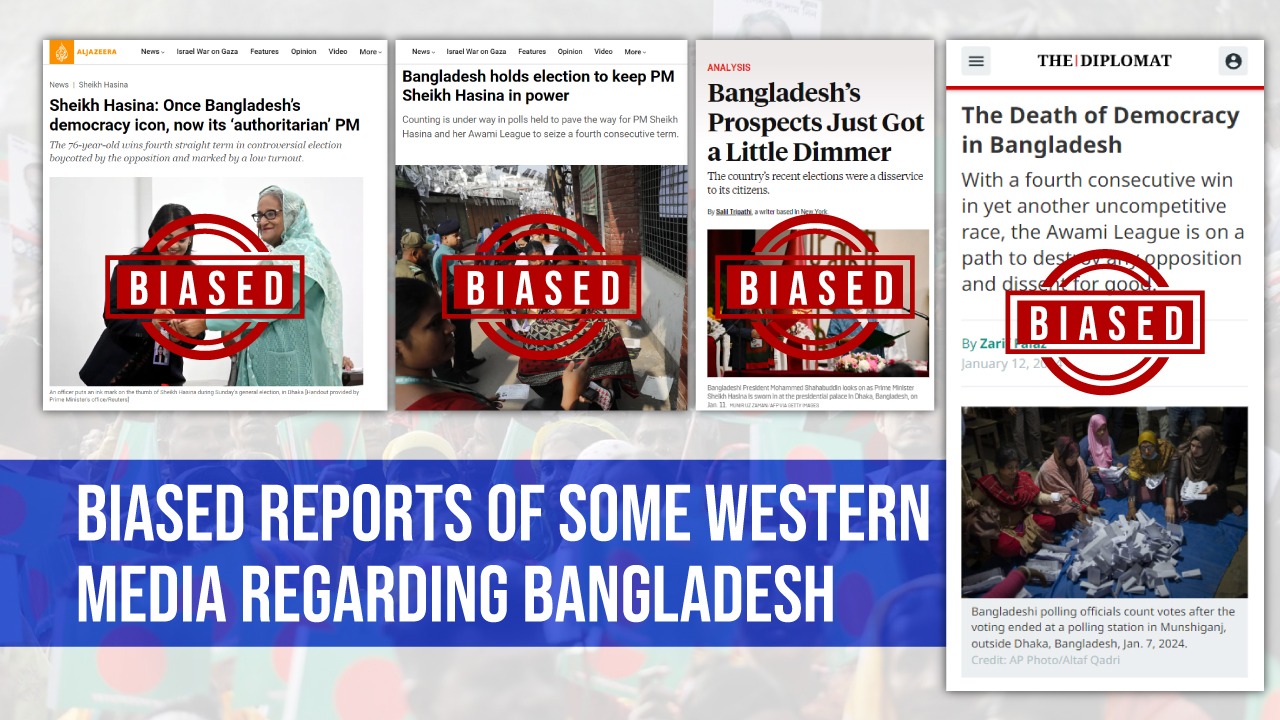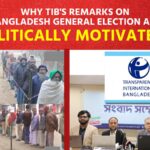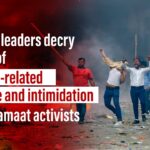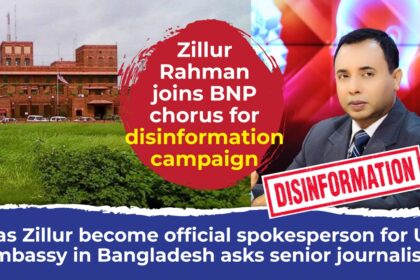Professor Dr. Mizanur Rahman:
The Constitution of the People’s Republic of Bangladesh ensures the democratic right to protest peacefully against any government. Article 37 of the Bangladesh Constitution provides, ‘Every citizen shall have the right to assemble and to participate in public meetings and processions peacefully and without arms, subject to any reasonable restrictions imposed by law in the interests of public order or public health.’ It is a universally practiced right to freedom of assembly. The protest must be ‘peaceful’. Unfortunately, it appears that BNP and Jamaat do not know how to protest peacefully.
On 28 October 2023, during the grand rally in Dhaka organized by BNP, a police constable Md. Amirul Islam was killed when a clash between BNP supporters and the police. Constable Amirul Islam had a daughter. This little angel still asks about her father, but her mother Ruma Akter has no answer. Ruma demanded justice in a human chain organized on 3 January 2024. One Mizanur was also present in the human chain. He lost his wife and child in a recent arson attack on a train and demanded justice. There are many unheard stories of arson victims and their families. In a statement, Advocate Rana Dasgupta said, ‘When [Tarique Rahman’s] mother assumed power in 1991, a deadly spell of persecution descended upon the minorities. And the last term between 2001 and 2006, when Tarique reportedly wielded influence on his mother’s government, witnessed state-sponsored attacks on minorities. From 2013 to 2015, hundreds of houses belonging to minorities were vandalized, burnt, and looted. There has never been any acknowledgment or remorse.’
Unfortunately, we hardly see any story in Western Democratic Media of the victims of BNP-Jamaat’s violent protests from 2013 till today. Rather they are busy teaching Bangladesh a lesson of democracy and human rights. The CCTV footage of the violent attacks and arsons perpetrated by the BNP-Jamaat activists has been ignored by the so-called free press of the West. Instead, Al Jazeera has started a malicious and malinformation campaign. In a report published on 8 January 2024, it says, ‘Instead of healing the wounds of that conflict [indicating the 1971 genocidal war], the trials triggered mass protests and deadly clashes. Her opponents branded the trials a farce, saying they were a politically motivated exercise designed to silence dissent.’
Bangladesh has a promise to keep i.e. to establish the rule of law, stated in the constitution which was achieved through the sacrifice of 3 million people in a a bloody war of liberation in 1971. Regretfully Bangladesh was never a heaven where the rule of law reigned. The first thing it failed to do was to try the perpetrators of the 1971 genocidal war. Father of the Nation Bangabandhu Sheikh Mujibur Rahman initiated the process by enacting the International Crimes (Tribunals) Act 1973. Before successfully prosecuting the war criminals and those who committed crimes against humanity, Bangabandhu Sheikh Mujibur Rahman was brutally killed along with most of his family members. The Indemnity Ordinance 1975 was passed to protect the killers of the Father of the Nation. BNP, established to put a garb of democracy on the military dictatorship of Ziaur Rahman, constitutionalized the Indemnity Ordinance 1975 in 1979. Not only that, Ziaur Rahman appointed anti-liberation politicians in his cabinet including Shah Azizur Rahman as the Prime Minister of the Bangladesh government. Moreover, he appointed the killers of Bangabandhu Sheikh Mujibur Rahman as ambassadors to represent Bangladesh. We should ask a question. Is this the way to heal the wounds? Can any sensible person tolerate such injustice and insult? Prime Minister Sheikh Hasina believes in the rule of law. She sought justice for twenty-one years but failed to get it. When she became prime minister in 1996 for the first time, she repealed the Indemnity Ordinance 1975 to start the trial process brought against the killers of Bangabandhu Sheikh Mujibur Rahman and his family members.
Nothing is a greater healer than justice. If Sheikh Hasina as a person got justice before 1996, the politics of Bangladesh could have been different. Moreover, if no assassination attempt was taken against Sheikh Hasina in 2004 through a grenade attack, the politics of Bangladesh could have been different. Sheikh Hasina’s government always believes in the rule of law. To carry out the unfinished work of her father i.e. to bring the perpetrators of the 1971 genocidal war to book, her government established the International War Crimes Tribunal in 2009. Nuremberg trials did not ensure the right to appeal before the appellate court. Originally the Act gave only the accused to appeal against the judgment of the International War Tribunal. In 2013, after a mass protest, the Parliament amended section 21 of the 1973 Act to allow state parties to appeal against any judgment of the tribunals.
Al Jazeera, an esteemed media house reported that ‘Muslim leaders’ were executed. It should be reminded that Bengali Muslims as well as Bengali Hindus were murdered by the army of the so-called Islamic Republic of Pakistan. On the one hand, Al Jazeera and the like are calling perpetrators ‘Muslim leaders’. On the other hand, a resolution in the US House of Representatives called the victims ‘ethnic Bengalis and Hindus’, intelligently hiding members of other religions. Both trends are harmful to ensuring justice for all the victims of the 1971 genocidal war.
Bangladesh has to go a long way. Still, the poor and the marginalized are victims of injustice in our society. We should work to improve the situation. However, the spreading of fake news by Al Jazeera and the silence of the big media houses of the West will not help the cause of the people. Can we expect the self-proclaimed ‘Democratic Media’ of the West to be truly democratic?
Writer: Former Chairman, National Human Rights Commission, Bangladesh
